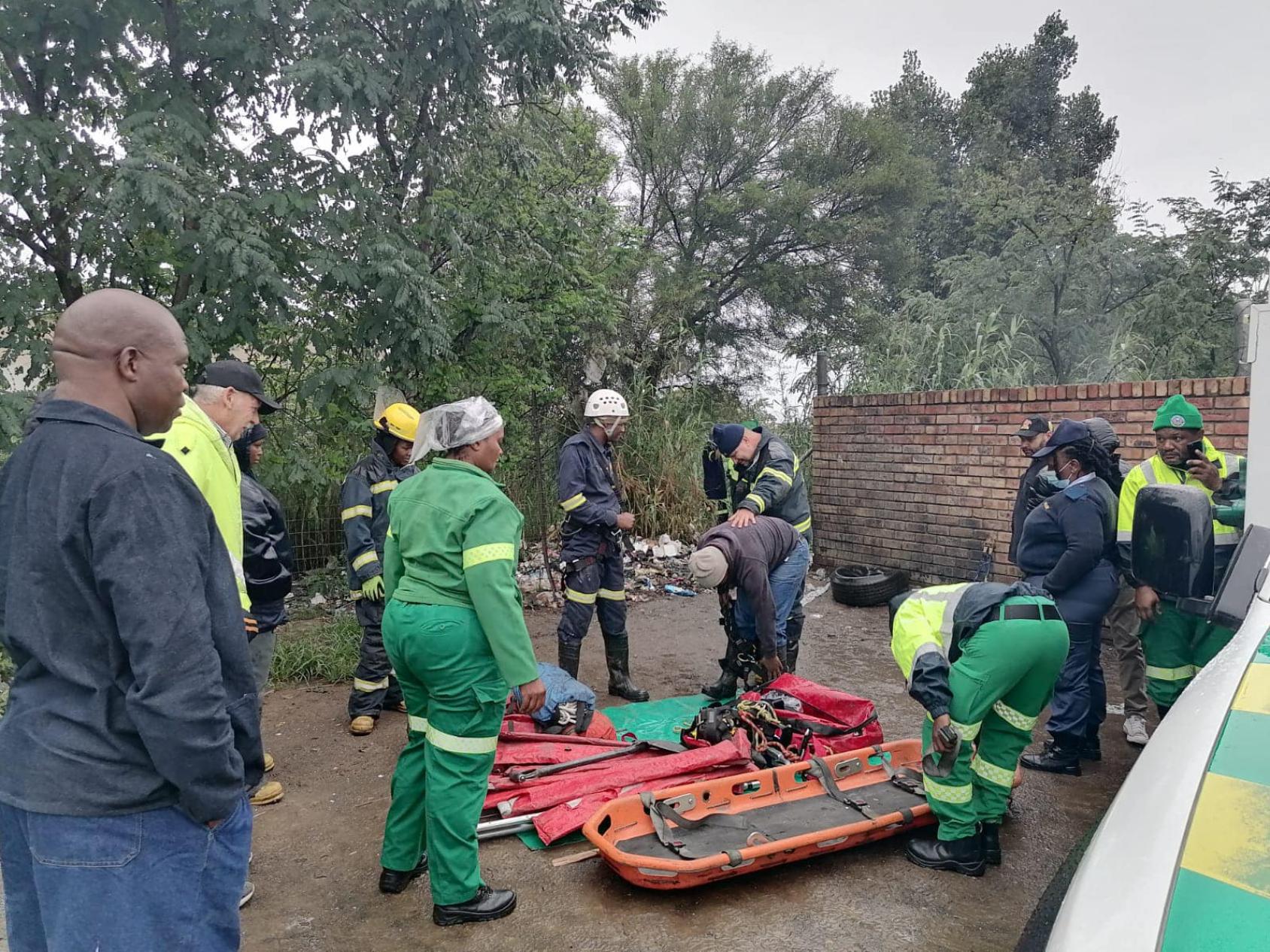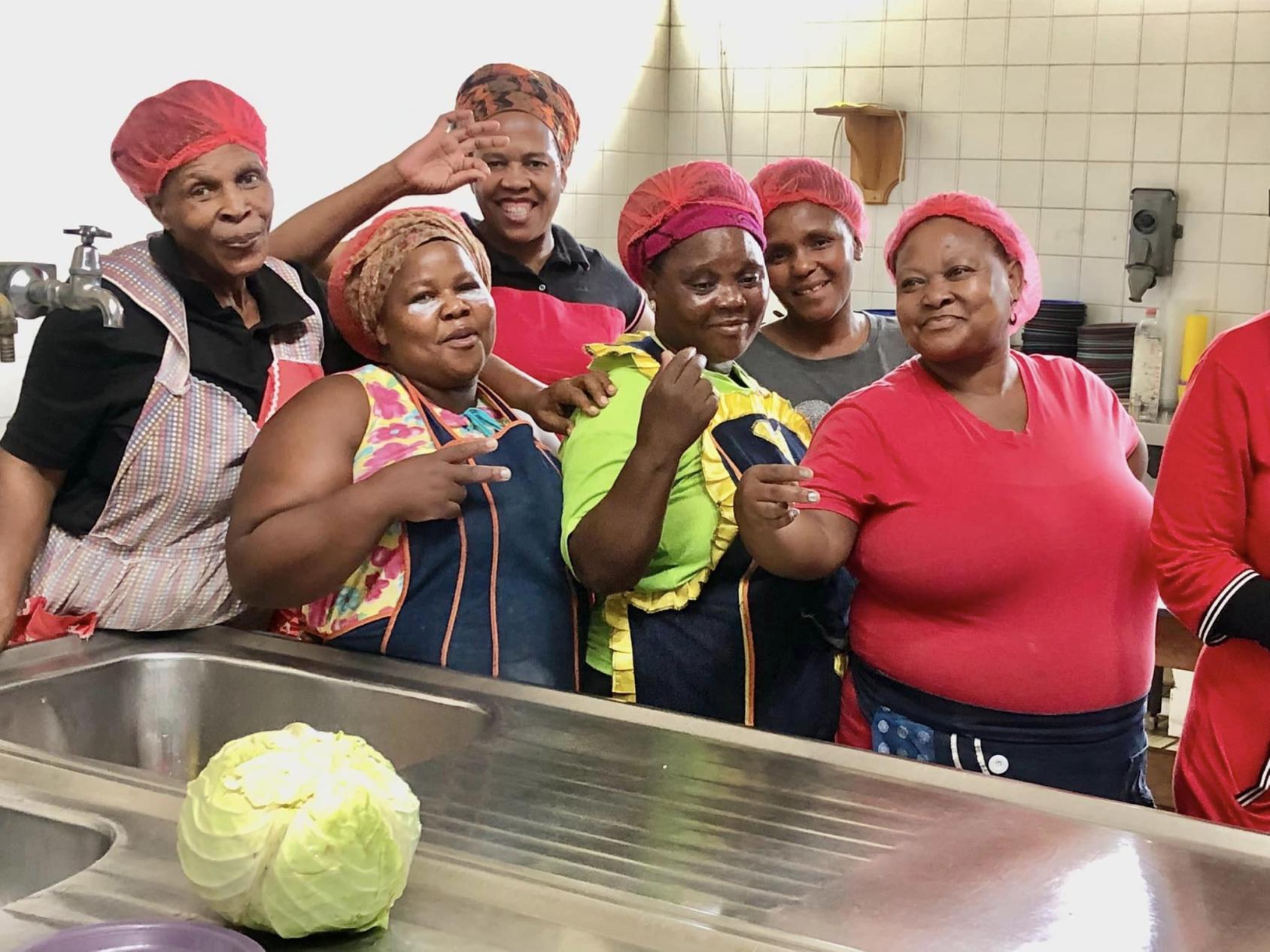
The torrential rains across the Eastern Cape and six other provinces of South Africa in February this year left a path of destruction in their wake, prompting the government to declare a national state of disaster.
In the Eastern Cape Province itself, more than 1,500 families have been left homeless after the rains washed away houses and belongings. Reports suggest at least 12 people died and many more displaced and forced to seek refuge in temporary shelters. The cost from the damage is estimated to be more than US$240 million.
Under the leadership of the UN Resident Coordinator, Nelson Muffuh, the United Nations in South Africa is collaborating with the government to implement an integrated flood response effort. This builds on the immediate needs and impact assessment undertaken by an emergency team that included the UN Children’s Fund (UNICEF), the International Organization for Migration (IOM), the UN Population Fund (UNFPA) and the Resident Coordinator’s Office (RCO) who traveled to the Chris Hani District Municipality, the worst affected in the province. The municipality covers predominantly rural areas with a few urban settlements.
One of the areas severely impacted by the floods is the small town of Komani located on the banks of the Komani River. Some residents were forced to climb onto the roofs for safety as houses, businesses and bridges were submerged in water.
With an economy largely dependent on agricultural products, the Eastern Cape has suffered from the impact of climate change as unstable weather patterns have caused floods, droughts and extreme hot and cold occurrences.

The assessment highlighted the dire level of needs in affected communities, with some people now residing in shelters at a local school. The UN is providing access to mobile health services at the shelters and has appealed for emergency provisions of relief items including healthy and safe food, mattresses, blankets, clothes and sanitary packs. Critical water, sanitation and hygiene supplies were provided to the displaced families, including 123 children and 24 infants.
Working closely with the government and local NGOs, the UN is ensuring that schooling for children remains uninterrupted and are continuing to provide essentials such as uniforms, learning materials. Under the WASH [water, sanitation and hygiene] programme, UNICEF has provided critical supplies to more than 1,000 displaced people who are living in shelters.
Moving forward, we are helping communities to build back better by finding ways to strengthen early warning and disaster preparedness and management systems. We will continue to reinforce resilience to climate change and other shocks at the core of empowering communities in the coming months
One of the reasons that local communities have been exposed to such devastating impacts of flash floods is the construction of informal settlements along riverbanks. This was also a common feature and the result of most fatalities during floods in the provinces of KwaZulu-Natal and Eastern Cape last year, as well as Alexandra township in Gauteng Province this year.
“The floods in KwaZulu-Natal Province last year taught us some very important lessons on how to respond to the immediate needs of displaced families,” said Mr. Muffuh. “Our response to the floods this time around was quicker and therefore more effective,” adding, “We are assisting the flood survivors by working closely with government and other partners, and providing relief and assistance in the short-term as we finalize our technical assistance, relief and resilience plans for the medium to long-term.”
The UN’s long-term plan of assistance to the province includes deploying social workers to provide counselling to the affected communities, taking measures to lessen the threat of a cholera outbreak and providing technical assistance to improve services in shelters especially nutrition, security, education, recreation, water, sanitation and hygiene.
Referring to this, UNICEF South Africa’s Representative Christine Muhigana said, “In the long run the UN will assist the government to improve shelter management while partners will work with the locals to set up community health and hygiene clubs as part of the support to speed up government’s response. Community club members will support the supply of water, sanitation and hygiene. This will include adopting hygienic waste management practices and distributing sanitation and hygiene supplies such as buckets, soap and other critical products.”

To reduce future risks from floods and other disasters and enhance community resilience, the UN, through UNICEF and its partners, is exploring the use of drone technology as a way to collect data and understand how obstructions to waterways and flood plains are threatening communities. The drones will help map the districts and collect data on the location of the population and local infrastructure, such as the number of houses, schools and community buildings in each residential area.
Initially, the drone technology will be used to map out an area of about 1.5 hectares in the Eastern Cape province. The data collected will be shared with communities to empower them with knowledge on the risks that exist within their locations and to identify relocation areas in the event of disasters.
This article was written by the UN RCO in South Africa with editorial support from UN DCO. For more information about the UN’s work in South Africa, please visit southafrica.un.org.